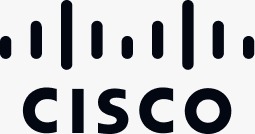
DevNet Professional (DEVCOR)
- Course Fee
- ₹30000
- Duration
- 120 hrs.
- Level
- intermediate
This course is designed for anyone seeking Cisco Certified Devnet Professional (DEVCOR)- The Developing Applications using Cisco Core Platforms and APIs (DEVCOR) course and gives in-depth knowledge to implement network applications from initial software design to diverse system integration, as well as testing and deployment automation. Candidates will learn to solve real world problems using Cisco Application Programming Interfaces (APIs) and modern development tools. This course will help candidates prepare for the Cisco Certified Devnet Professional (DEVCOR) certification exam and advanced-level automation engineer roles. This is a lab-intensive course and objectives are accomplished through hands on learning.
Enroll NowCourse Metadata
- Training Type
- ClassroomOnlineCorporate
- Batch Timings
- Early Morning
- Morning
- Afternoon
- Evening
- Fastrack
- Morning
- Afternoon
- Evening
- Sat / Sun
- Sunday Only
For the latest training schedule, please
check the Schedules.
Weekdays
Weekends
Training is available in small groups as well as on
one-to-one basis. Get in touch.
Introduction
This 120hrs (Lectures + hands-on Lab) Cisco Certified DevNet Professional- The Developing Applications using Cisco Core Platforms and APIs (DEVCOR) training is designed for Senior network automation engineers, software developers and system integration programmers involved in designing, implementing, and managing advanced-level network automation and DevOps. Candidates will learn to implement network applications from initial software design to diverse system integration, as well as testing and deployment automation. Candidates will also learn to solve real world problems using Next Generation (YANG) data models, Cisco Application Programming Interfaces (APIs), distributed systems methodologies and modern development tools.
This course will help candidates prepare for Cisco Certified DevNet Professional certification and for professional-level network automation engineer roles. This is a lab-intensive course and objectives are accomplished through hands on learning.
The key to a high success rate is based on the program’s objectives as follows:
- The course contents are based on Cisco DevNet Professional (DEVCOR) course outlines.
- Dedicated Monitoring to evaluate and report candidate’s progress.
- Extensive hands-on lab exercises.
- Industry acclaimed, experienced and certified instructors.
Successsful Career
RST Forum has trained more than 700,000 students to date. Many students have gone on to successful careers in a variety of industries, while others have harnessed the entrepreneurial spirit and knowledge they acquired in RST Forum to start their own businesses and create new jobs.
Labs on cloud
RST Forum uses Cloud computing to efficiently provide “Platform As A Service” (PAAS) to its students enabling them to quickly access Technology Racks over the internet and practice lab exercise from home These Racks are populated with latest equipment’s required for practical exercise’s.
Web Forums
Our web based forum allows its users to ask, hundreds of technical experts about their technology and certification problem. RST forum is a tight knit community of working professionals that provide timely help on technical, certification and design related queries.
Enroll for this course now and boost your IT & Engineering career.
Master DevNet Professional (DEVCOR) today.